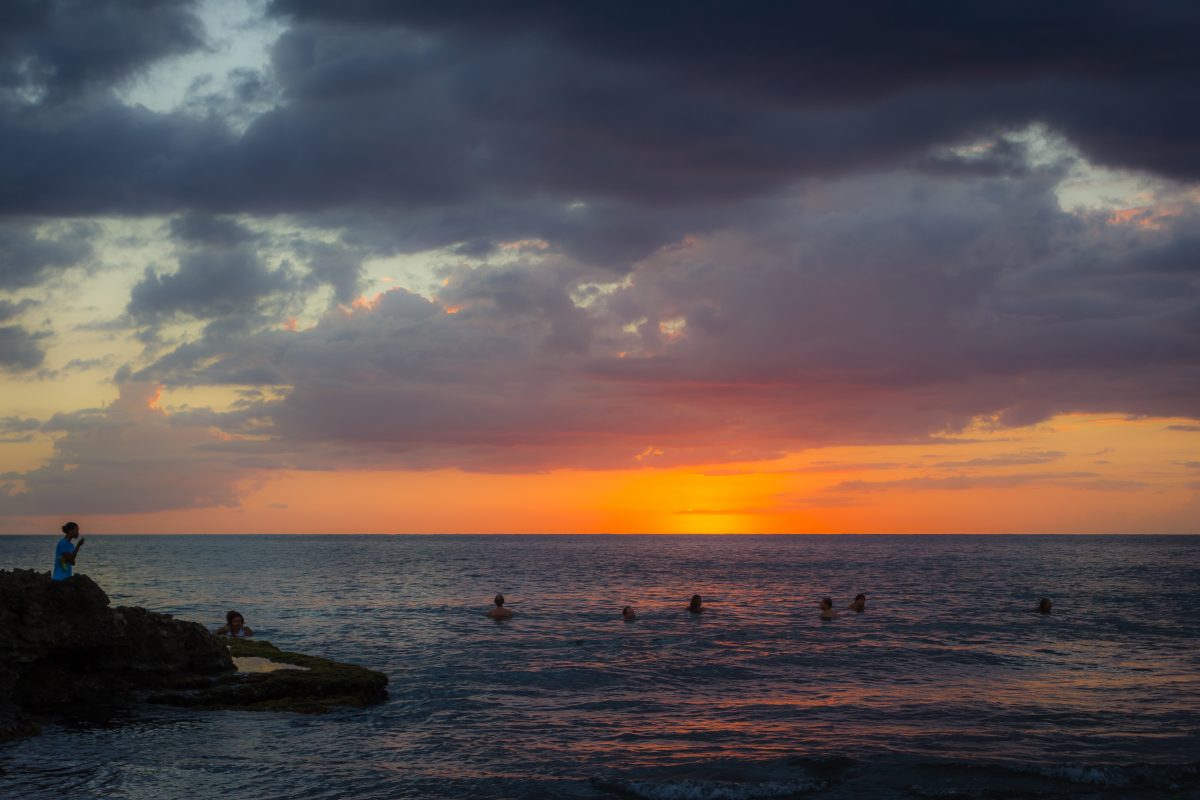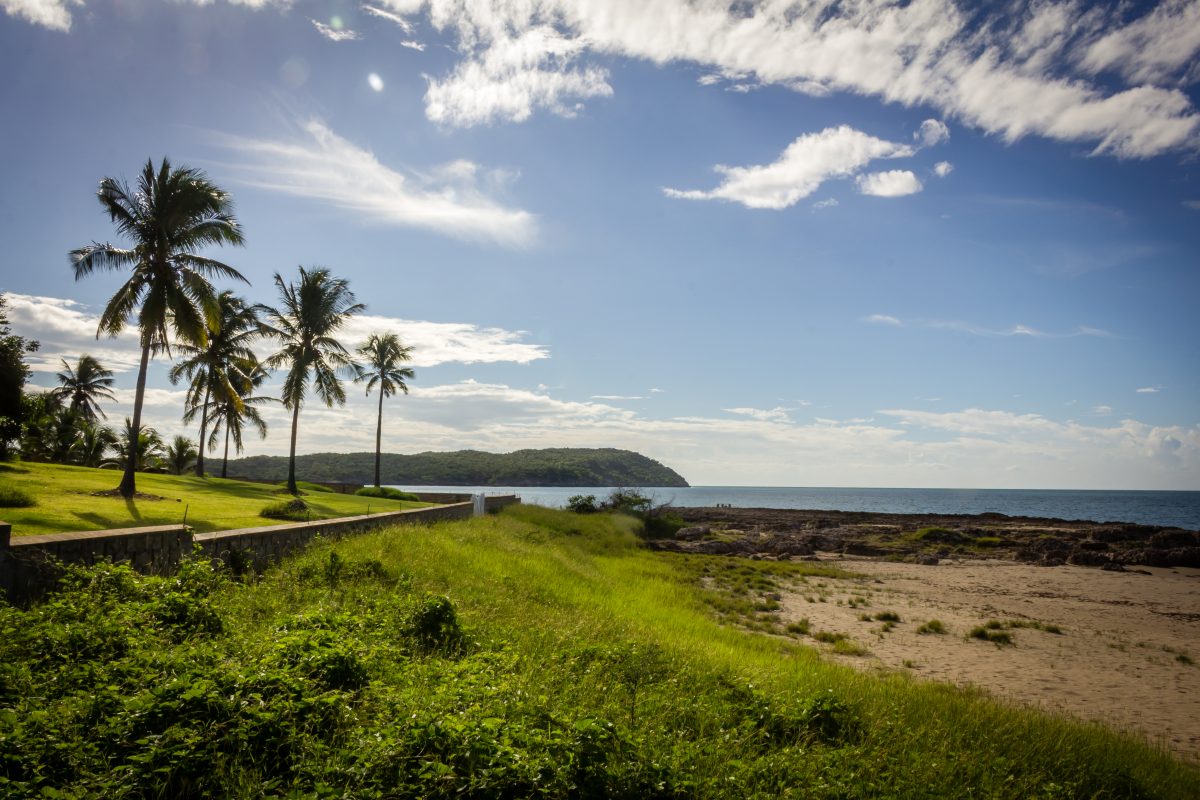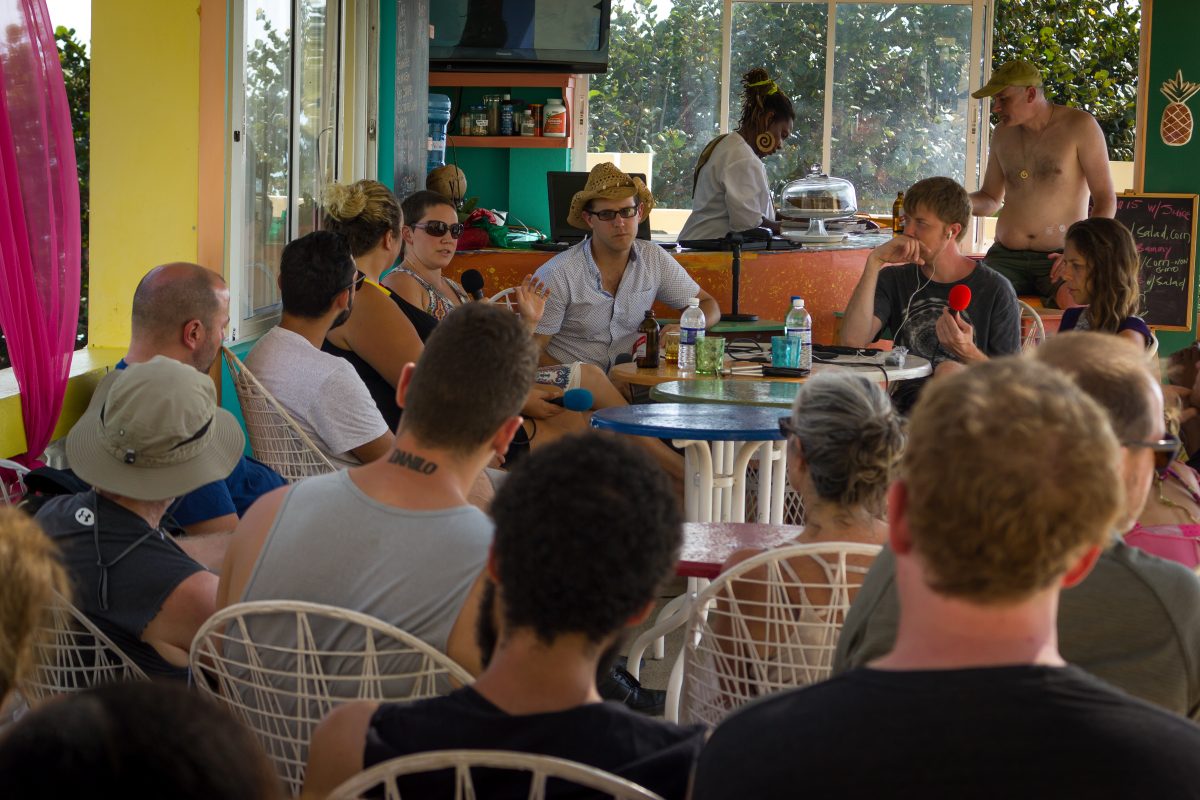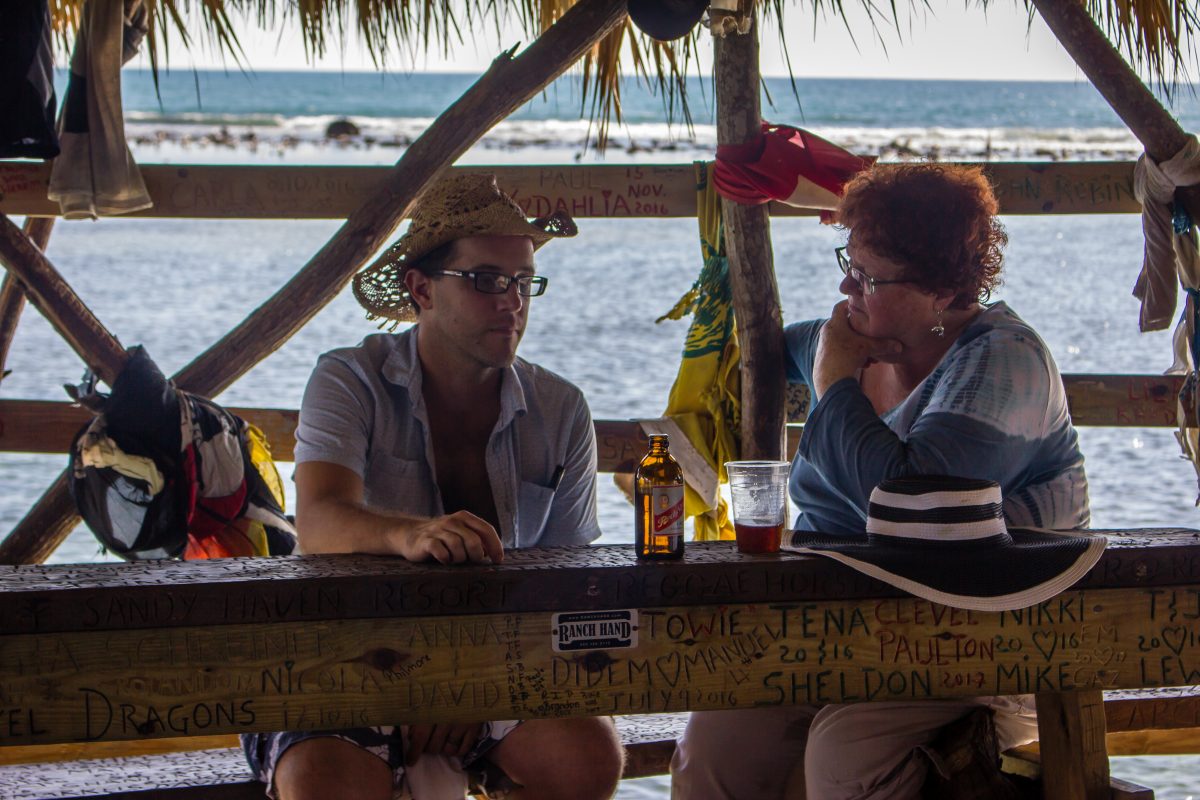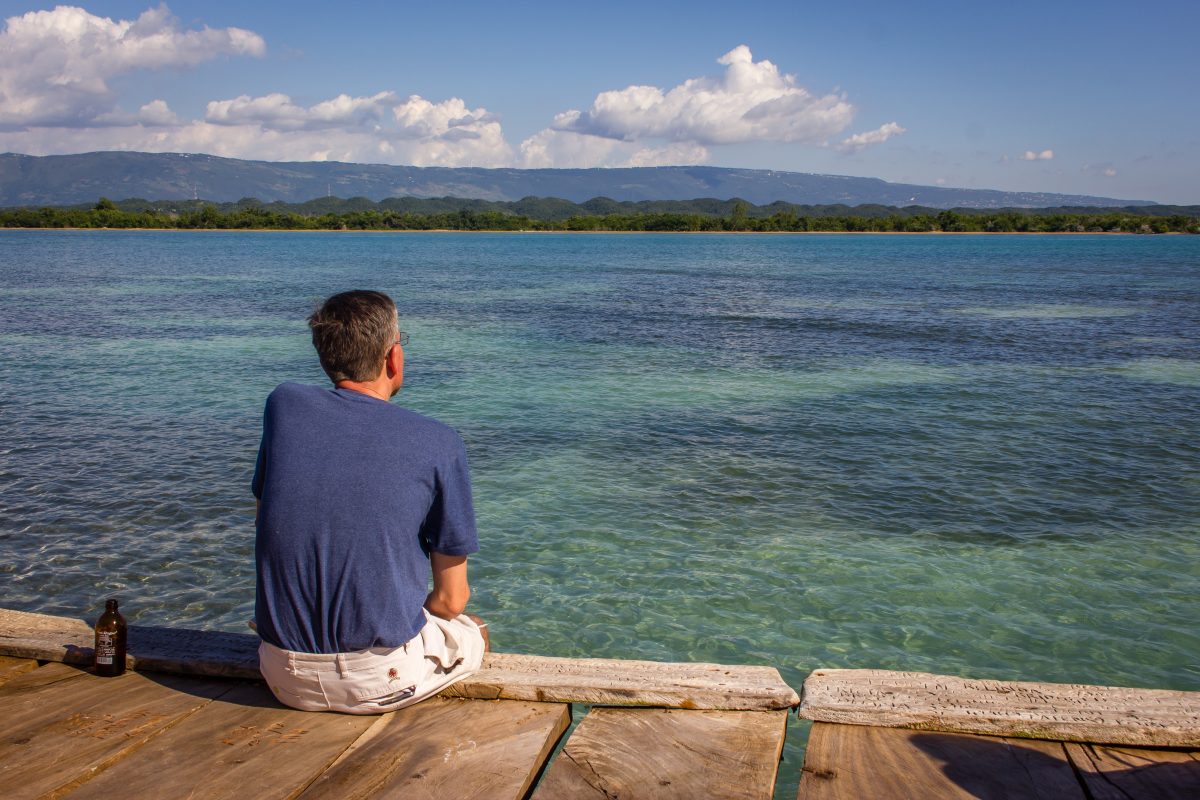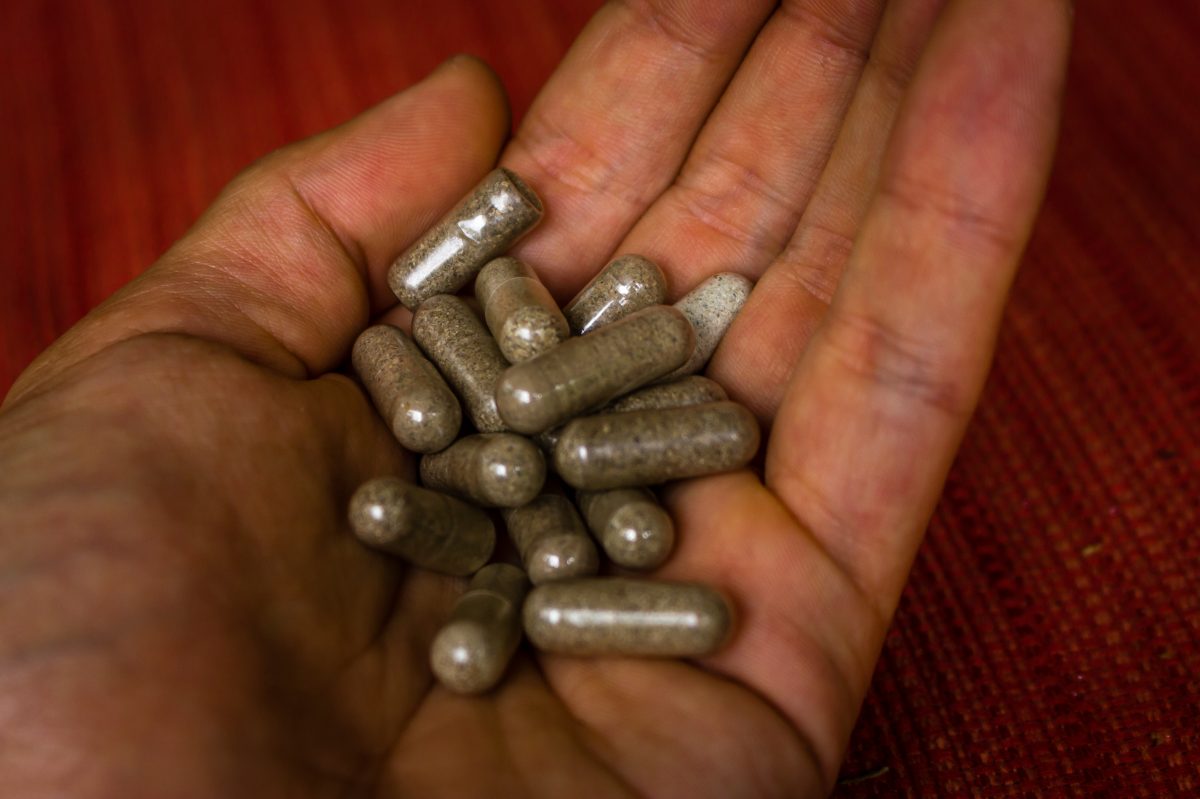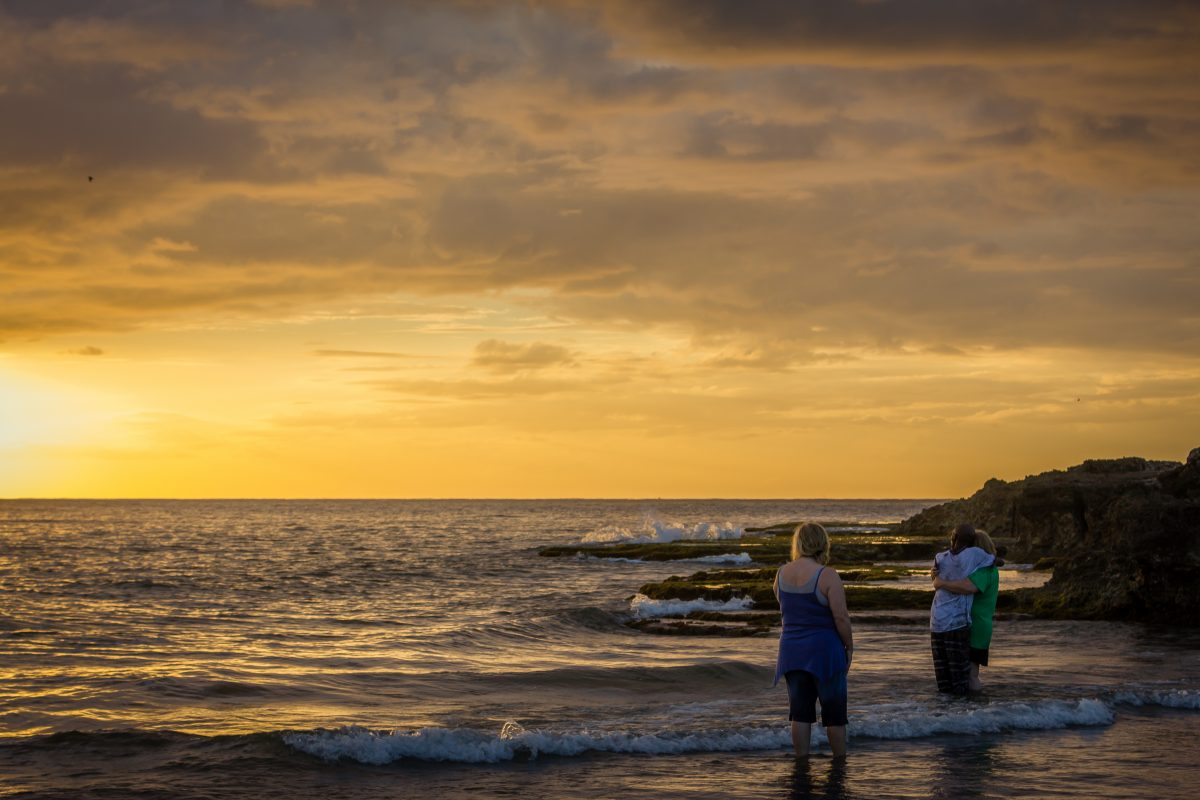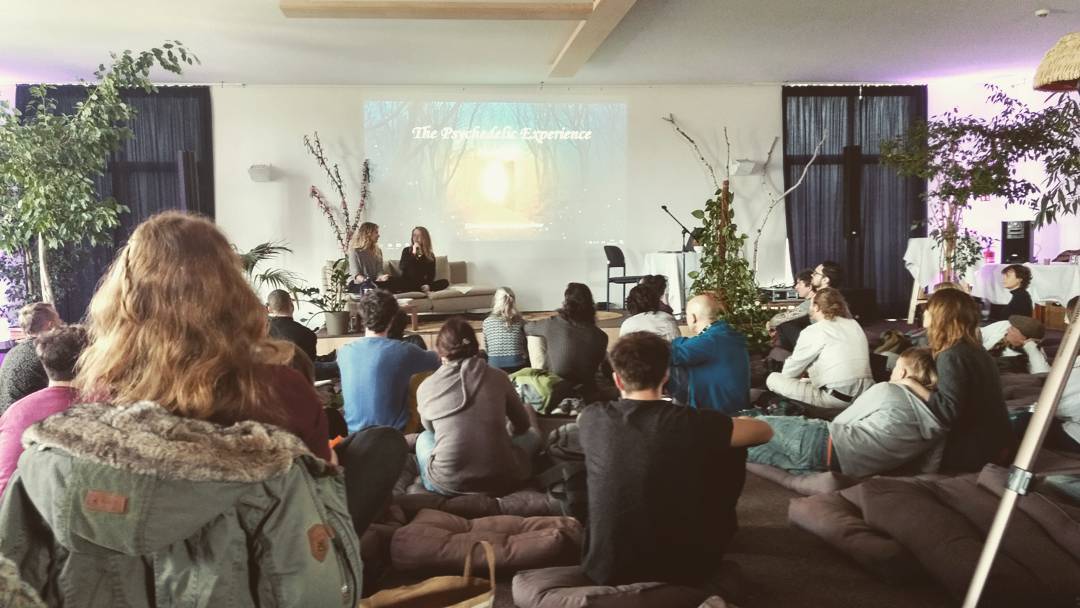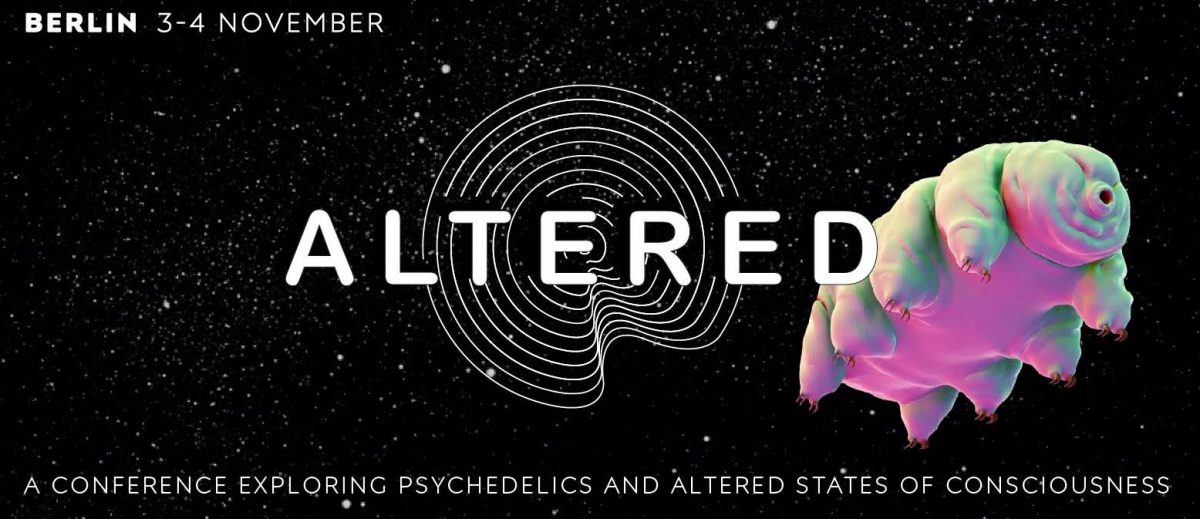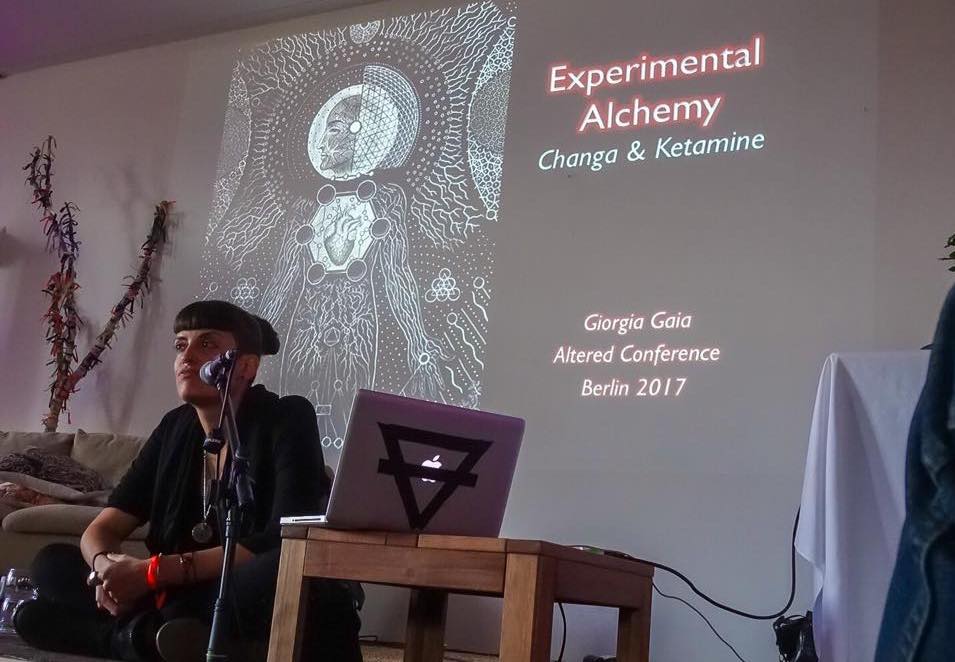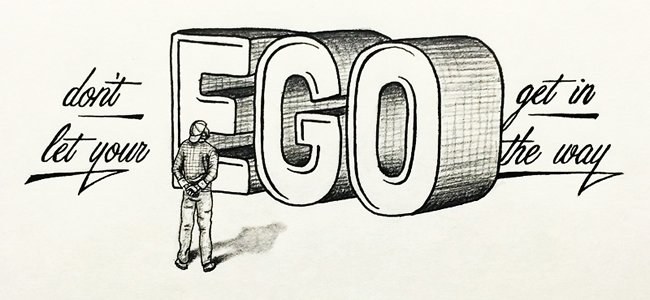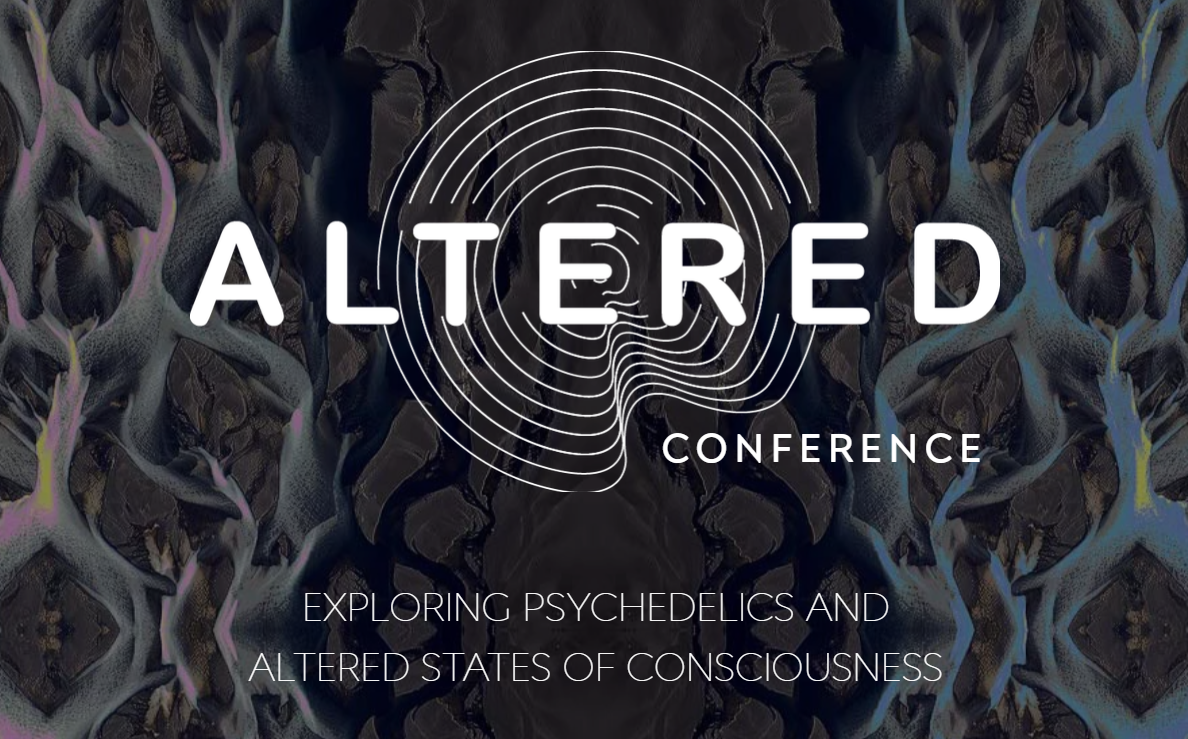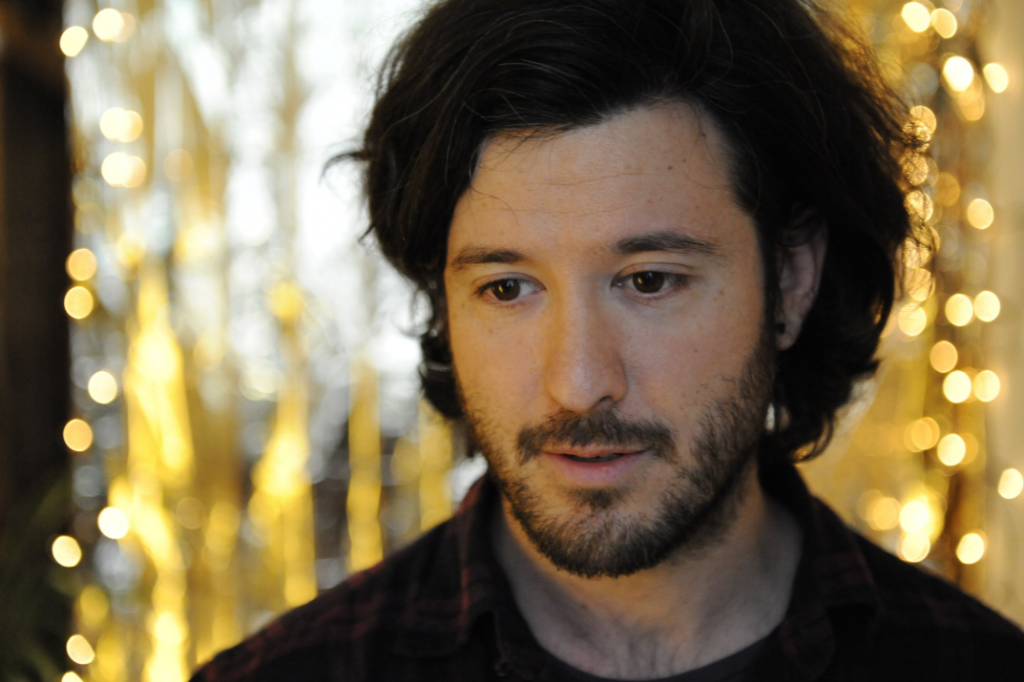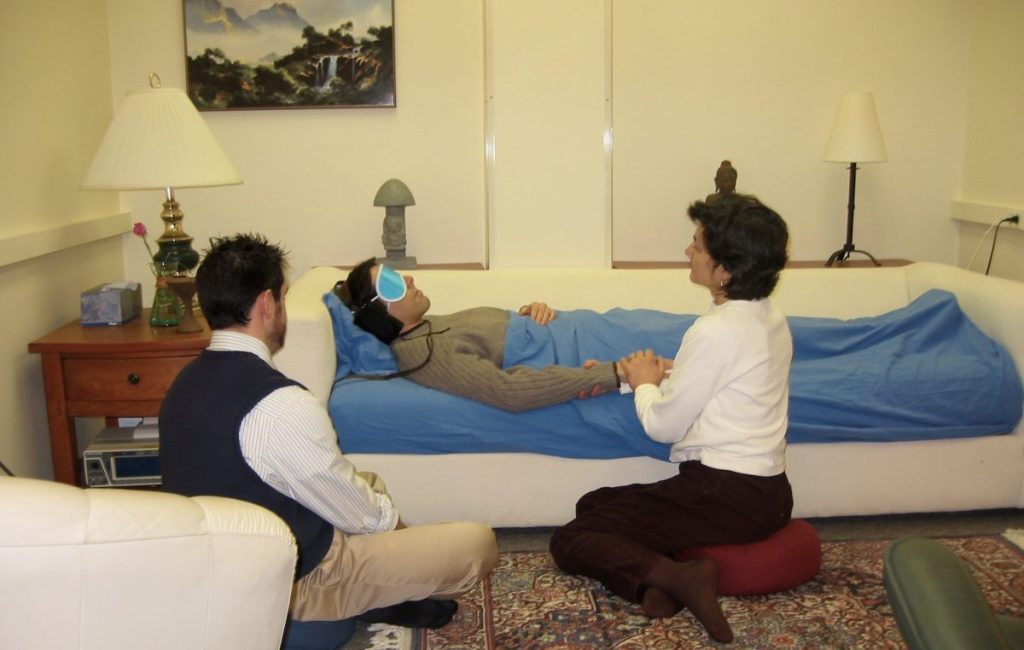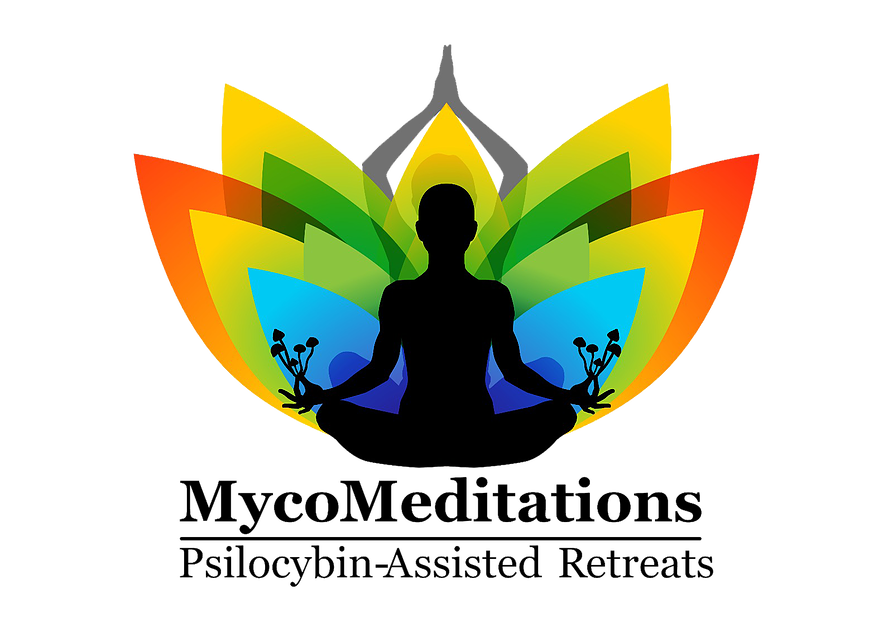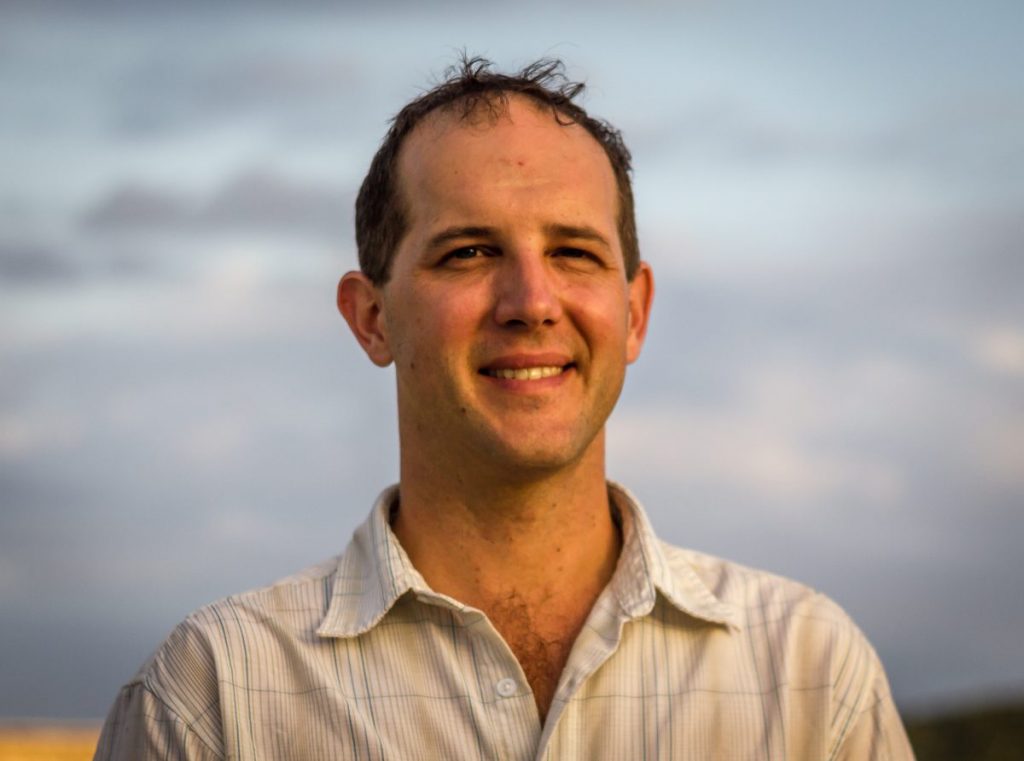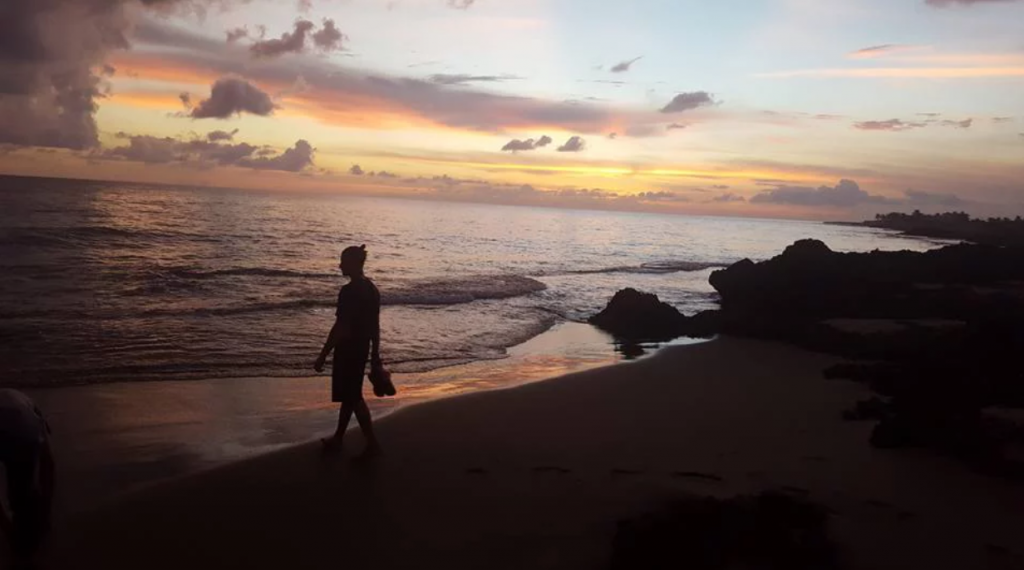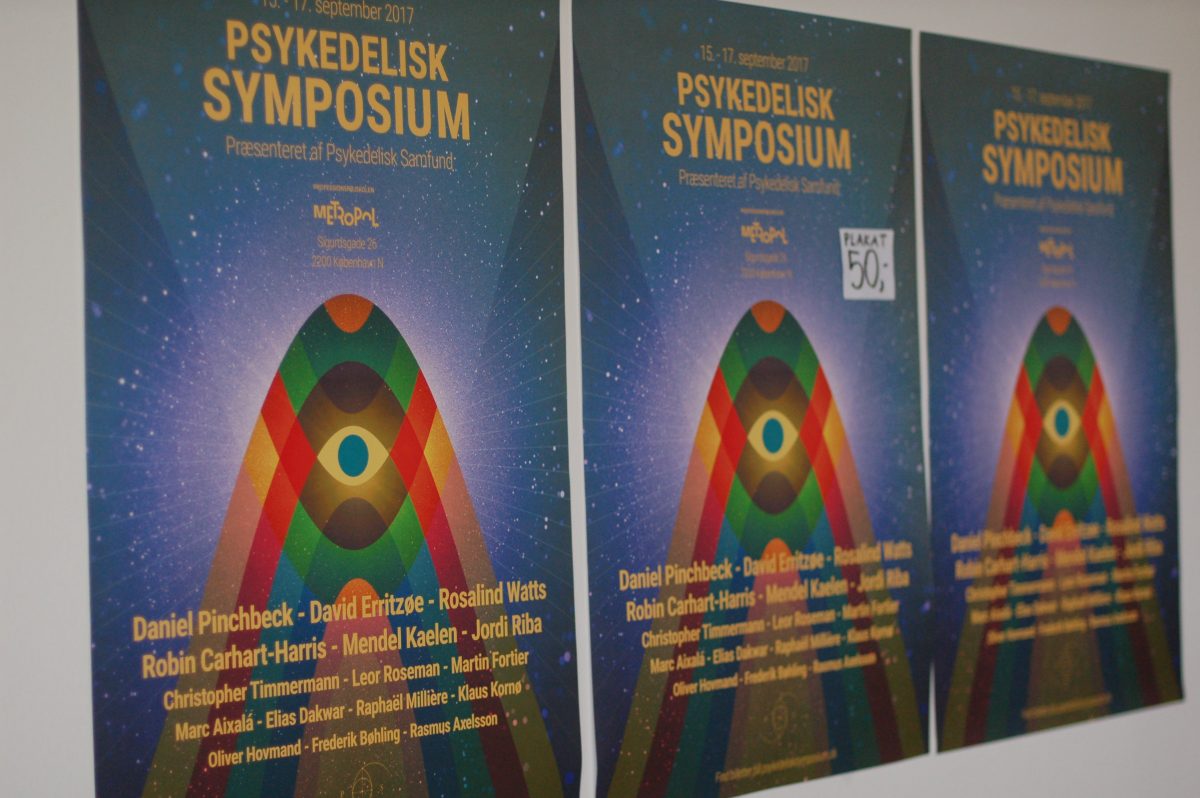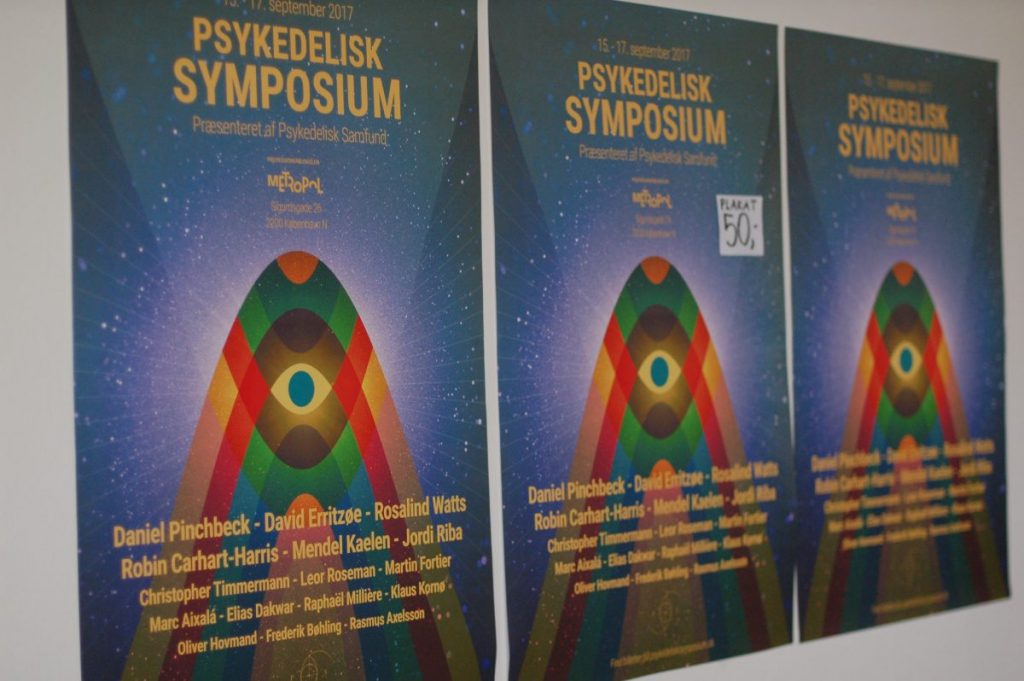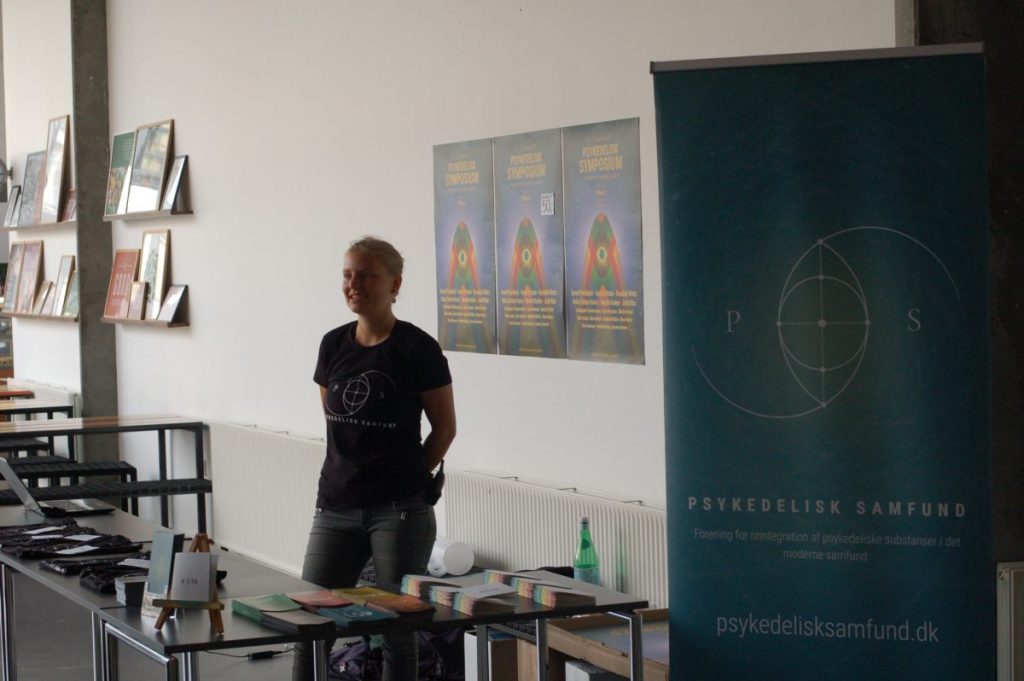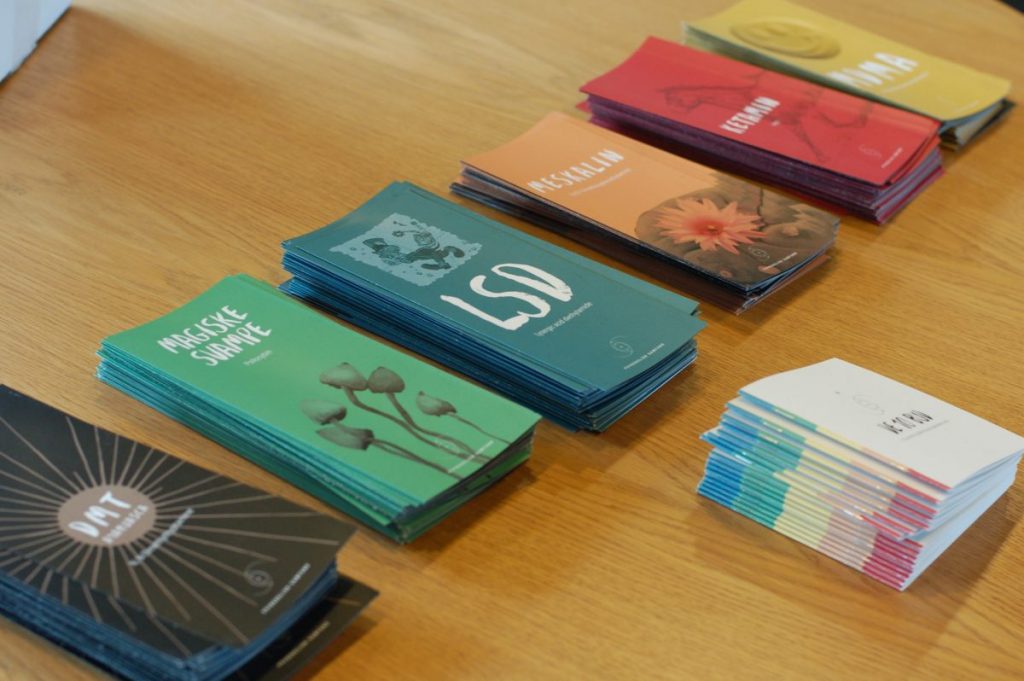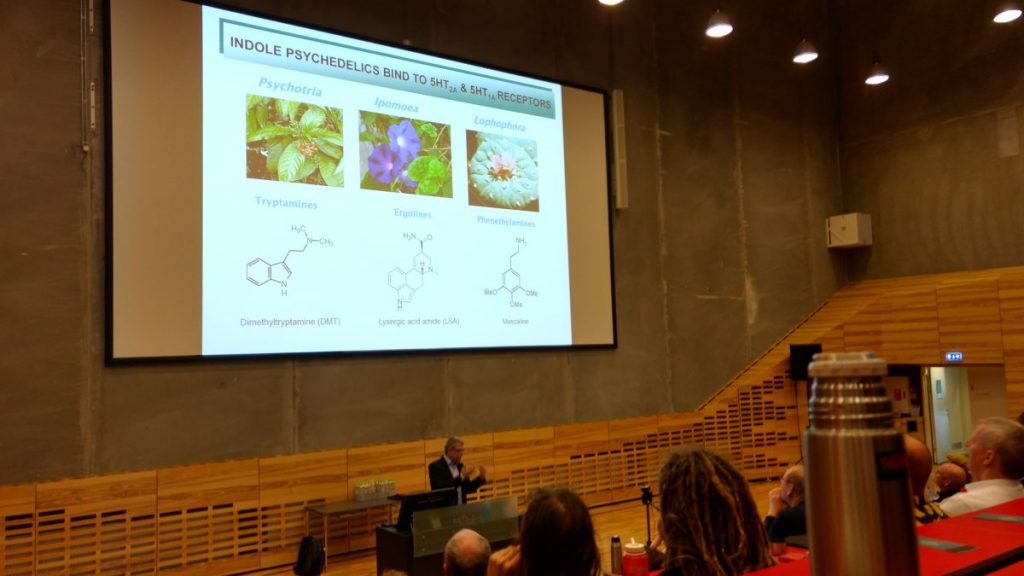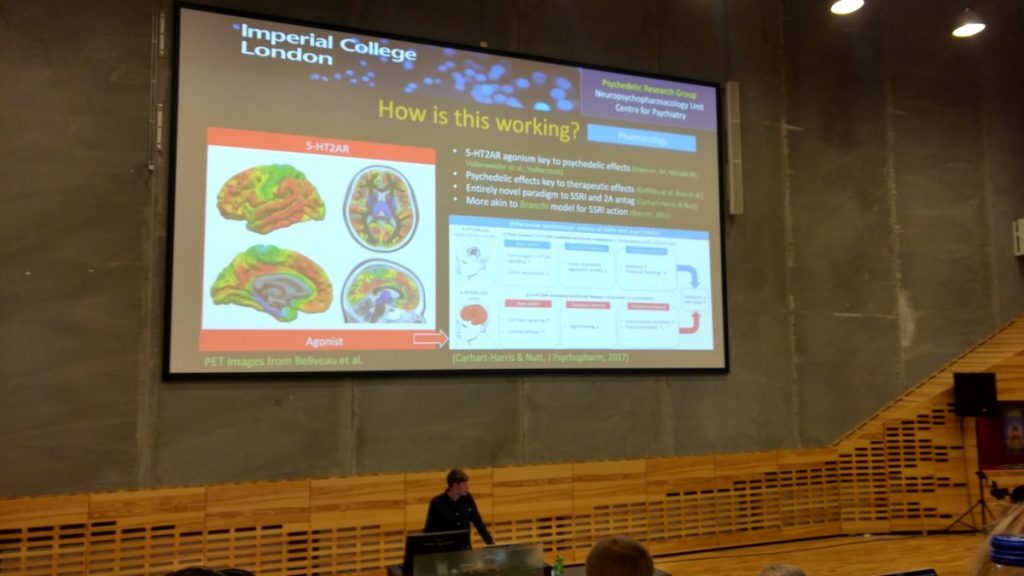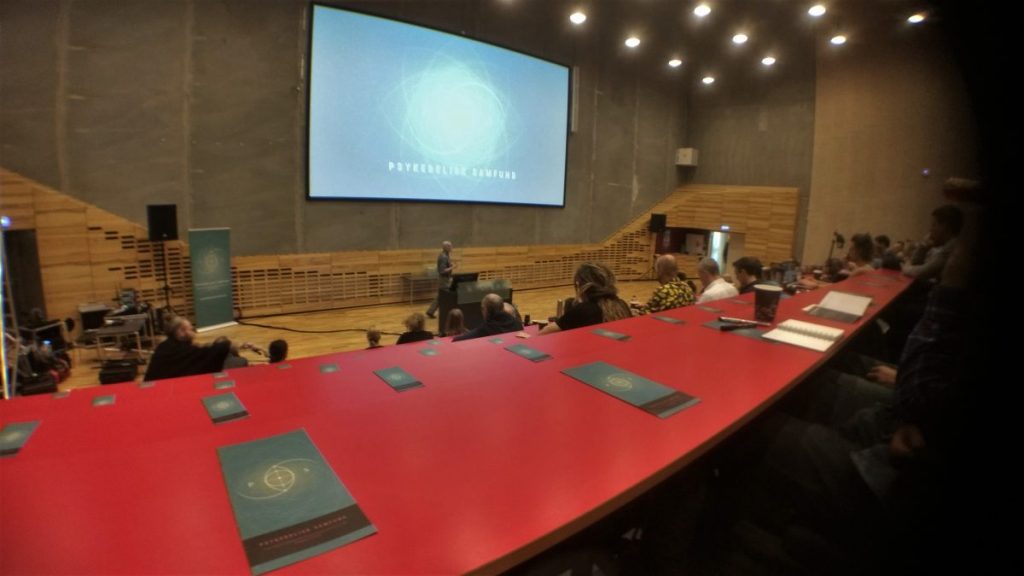At the end of last year I went to Jamaica to work at a psychedelic specialists psilocybin mushroom retreat. In case you’re wondering if you read that right, I’ll repeat. Psychedelic specialists. Magic mushroom retreat. In Jamaica. Yes, I know. My life sucks.
Put on by Myco Meditations, the 10-day retreat was on the south coast of the island and had plenty going on outside of the 4 psilocybin sessions – there were group activities like art integration and guided meditations, presentations on psilocybin and session prep, and optional day trips to local areas. Comedian Shane Mauss did some of his ‘A Good Trip’ standup on psychedelics and a talk on DMT, and psilocybin researcher Katherine Maclean gave talks and acted as a facilitator for the sessions. Frankly speaking it was as awesome as it sounds and definitely a highlight of a what was personally an unpredictable roller coaster of a year.
How Did I End Up There?
A question I asked myself a few times. The short answer: by following my passions. The longer version is that I came across Myco Meditations online some time last year and after a brief email exchange with founder Eric Osborne we set up a skype call. Over the next couple of months we continued to connect and the next thing I know I’m booking a flight to Jamaica to film at the event.
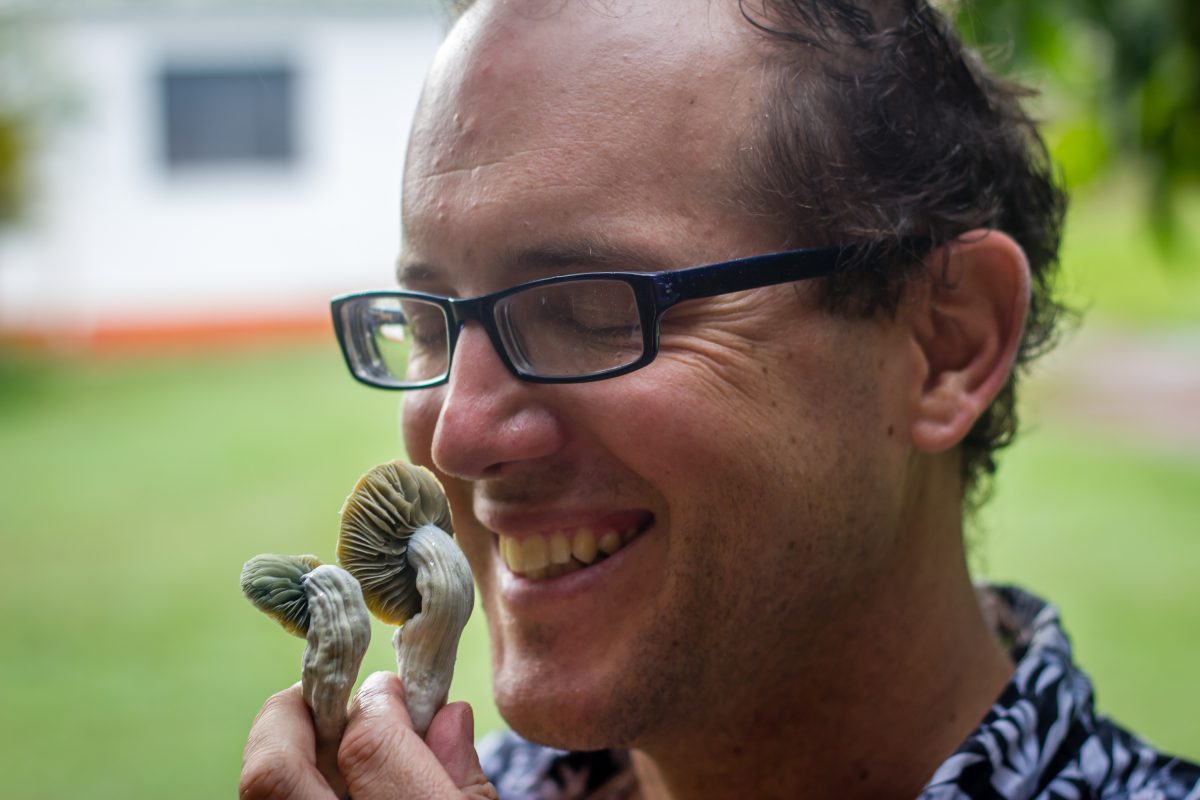
Eric – a man who is happy whenever around mushrooms
Filming & Integration
I was there primarily to film some videos for the MycoMeds website and youtube and the filming interestingly merged into psychedelic integration, an emerging field I’m becoming increasingly interested in and one I think will develop rapidly in the coming years.
I sat down and did interviews with those on the retreat, asking them about their experience of it – the group dynamic, the facilitators, Jamaica – and more specifically their experiences during the psilocybin sessions. Doing these interviews was rewarding in itself and as people opened up I was reminded how important and powerful this work is. It really got me, and during one interview as someone talked to me about family troubles and how they’d come up in one of his high dose sessions, I was struck deeply with compassion. People were gaining new perspectives and the ability to see things in a more positive light. Good to know the mushies were working their magic.
The interviews gave me ideas for a type of video integration – where people can speak about their experiences and have the videos to help reconnect them to their experience and their new perspective, and continue to work with the insights they’ve gained. If you have any further ideas on how this might be developed, contact me.
Sitting
As well as filming I was also a sitter/facilitator for half of the sessions. Being entrusted in this role to be there for people during their psychedelic experiences is an absolute honour and privilege. Truly humbling. There is a lot to get into here and too much for this post so I’ll just say that sitting really is a skill and something which I learn more about with each experience – this was no different and I learned things which will inform my approach next time. Until then, my basic advice as a sitter to a tripper would be: if you encounter difficult emotions, relax, go towards and into them, and explore them with curiosity.
Let your guard down and walk naked into the fire.
(Metaphorically speaking. Please don’t actually walk into a fire.)
The Importance Of Vulnerability
The retreat made me realise that this willingness to vulnerability isn’t just important in the psychedelic experience – it’s important as a part of life. The group on this retreat bonded as the week progressed and conversations became deeper as we started opening up to each other more and more. I was reminded, yet again, that we’re all human and all have our troubles and struggles in life. Something that’s surprisingly easy to forget.
This is something that should be acknowledged because ignoring problems is never a good long term game plan. Whilst I don’t think it’s healthy to focus too heavily on problems – of course we should take time to count our blessings and enjoy life as it is – I do believe that the areas of our life we struggle with should be looked at honestly and strategically. If problems are left without inspection they may grow into a beast that is hard to even look at, let alone begin to decide how to take down. Naturally, looking at our problems isn’t comfortable, sharing them with others less so, and that’s exactly why it takes courage to be vulnerable. It seems natural to think of vulnerability as a weakness but the truth is the opposite. The ability to be vulnerable is a strength.
Having a group setting where you can sincerely share your problems is powerful. Talking about your problems or fears can give you the chance to say out loud things that have never been truly acknowledged. This can lead to a new understanding of your own feelings and opinions on things. Having someone patiently and sympathetically listen to you reinforces that its OK and normal to have problems and that we don’t need to hide from them. Once they are acknowledged then we can start to formulate a plan to tackle them. By talking with others we can receive support and advice on how to do this. If it is something out of our control, we can begin to learn acceptance.
The other side – hearing other people’s problems – is also helpful. We usually get so caught up in our own worlds that it’s easy to forget that everyone else is fighting their own battles too. But when someone is sat in front of you telling you they struggle with a difficult relationship, social anxiety, depression, direction in life, or whatever it is – you can’t ignore it. It shatters the facade of the world that deceives us through advertising – that everyone is supposed to be happy all the time – and hearing it directly from someone else gives you a very real reminder that you’re certainly not alone in your struggles. This can be empowering; a shared burden feels lighter and you can share with each other things that have helped you.
The Necessity Of Retreats
Most people don’t really take the time to properly reassess their position and direction. Too busy distracted. Or trying to earn or spend more money. Because apparently that’ll make us happy. But we know that really this isn’t true and instead of chasing the next hit of fleeting pleasure we should just stop for a second (or a week, or a month). We should take the time to see where we are and where we’re going, otherwise we’ll unwittingly end up somewhere we never wanted to be – ‘somewhere’ being the type of person we are and the life we’re living.
Retreats by their nature offer us that opportunity to stop, reflect, have those important conversations, and realign ourselves. They give us the distance from our normal lives that is needed to get some perspective, and after we can go back into the world with our priorities in order. Combine this with psychedelics and a deeper mental reset and you have a powerful combo. But even without psychedelics I think that making time for this type of self-assessment is important. This is my way of saying; take time for yourself where you can really look at your life without distractions. Find your own retreat or ‘workation’, however it might take shape, where the work isn’t job-related but is work on yourself. Then take an actual break after, because if you’ve been working hard, you’ll need it!
Final Trip, 7.5g
Back to Jamaica, I figure I’ll finish where we did – the fourth and final trip. After facilitating for the second and third, I took part in this session as a tripper. The first three were in the evening but the final trip was to start in the afternoon so that there could be an outside and daylight option for those that wanted it. As well as the outdoor which would be a more sociable setting, there was an indoor option for those who wanted to do more internal personal work. I went for the indoor.
There was around 7 of us in the room, most people with doses of at least 5g, some going up to 9. We all lay down on and mats and music was played through a speaker. I can’t really comment on the music as I opted for headphones and put on a playlist by Mendel Kaelen – a psychedelic neuroscientist whose job it is to select music for people on psilocybin. I figured it should be fairly appropriate.
I was allowed to choose my own dose and went for 7.5 grams. I know that might sound like a lot but I have a really high tolerance to psilocybin and I’d guess that 7.5g for me is probably what 3g would be for the average person. After knocking back the capsules I went for the classic therapeutic procedure – sleep mask and headphones – and tried to relax myself as much as possible.
About 2 hours in the vivid sight of a family member on their deathbed came to me. I could see them so clearly that I could see the lines on their face. I felt sadness and fear at their imminent passing and started to cry. I tried to cry quietly to not disturb the others in the room, but at the same time to let it go. As I cried, I felt a hand softly rubbing me on my back. It was one of the facilitators, their touch told me “It’s ok for you to feel that sadness, it’s OK for you to cry. You are OK here”. After probably 10, 15 (?) minutes the sadness and accompanying tears eased up. I dried my eyes, blew my nose, and lay waiting to see if there was more to come. After a short time I could feel there was no more – the chapter had ended and the sadness had passed. And I kinda needed a pee.
I got up and went to the bathroom. I still had the Kaelen playlist playing in my ears but the purging was done and I was in a different space – I had a real urge to listen to some dirty riffs and big ass pumping rock tunes. Time to go off playlist. I grabbed a lighter from the kitchen and then went out on to the back balcony where I remembered there was a half a joint that had been hanging out there for a couple of days. I didn’t realise it before but I knew it now: that joint was waiting for me. I pulled up a seat to get a view of the lush green landscape and interrupted a soft and soothing tune for some Japandroids – crunching garage punk rock with anthemic choruses. Cranking the volume as the intro began, I lit up that joint.
Ah man. Glorious. The sweet ganja washed over me with a warm fuzz that somehow fused with the gnarled distortion on the guitars, and in a crazy life-affirming haze of noise, I felt fucking great. I heard the detail of the tone on those guitars like I haven’t heard in a long time and I closed my eyes tight, feverishly bumping my head to a beat that was pumping me up with a fresh lust for life, simultaneously satisfying and whetting my appetite for adventure and exploration. Wild, ecstatic, euphoric. It was reminiscent of my first ever trips and again reminded me that all life is an adventure, the message echoed by the chorus flying through my headphones…
“It ain’t shit, it’s just kicks… And like the world I’m going on and on and on.”
Now I know that might sound like some cheap adolescent wisdom but it’s a message that is much needed when life starts to seem heavy and a little too serious – ultimately life is nothing, it’s just kicks… pressure’s off, don’t sweat it too much, go explore and have fun.
Message received, I jammed out to another stone-cold rocker on the balcony as the rest of the group did a final meditation inside. The closing of the meditation signalled the end of the formal session, and we headed for the beach to meet up with the outdoor group.
We arrived at the beach to find the others already there, some in the sea, some exploring the nearby terrain. I found a spot to lie on the sand and got comfortable. “Inspiration and beauty for the next half hour!” Eric said announcing the immediate schedule. As I looked out to the colours starting to appear over the horizon, I had to agree. I lay there smiling to myself until Kristjan, an Estonian retreater with a brilliant accent that I’d come to love over the course of the retreat, appeared from behind a mound of sand. He wandered over with a characteristic smile and typically perfectly rolled joint in hand. Holding it up, he asked “Wanna try some of this sweet hash?”
As advertised, it was sweet. As was pretty much everything else about that evening on the beach. I caught up with the others about their journeys as we bobbed on the waves, and shared joints over conversations about dreams and the world. After the sun had set we made it back inland for dinner where Shane let our table in on some more of his crazy brilliant ideas. Engaging and heartfelt conversation over dinner with good people, before stepping out to gaze up at the full moon. What else can I say? It was the perfect end to the retreat.

